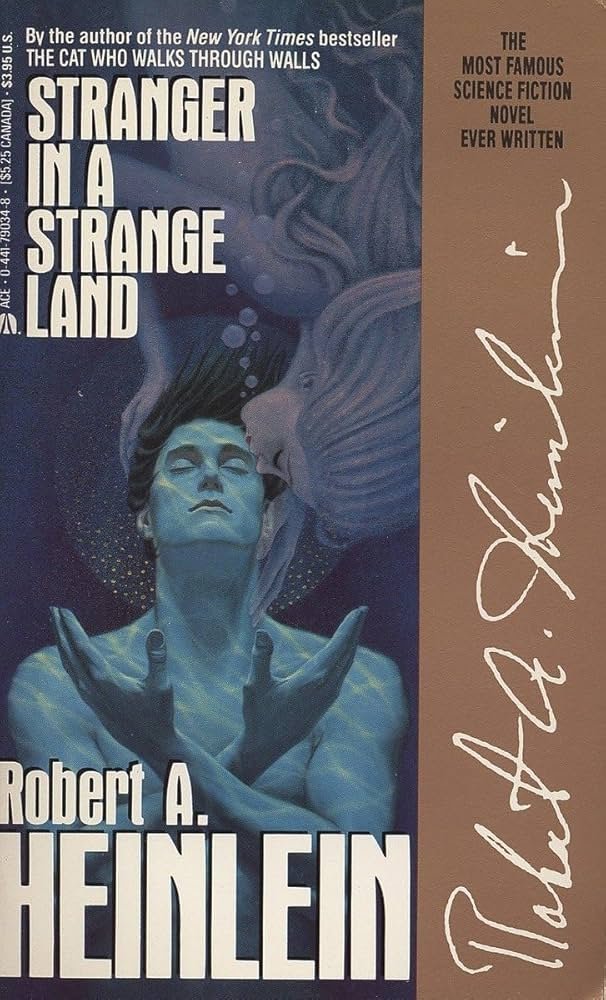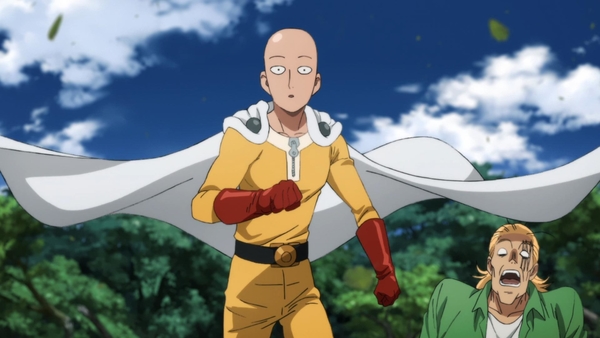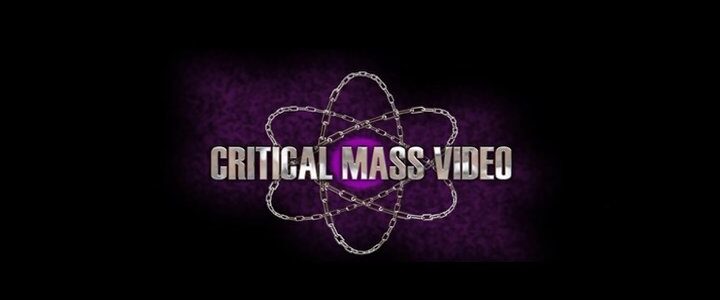 As I continue to go through my home looking to do various purges of all kinds of things, the most difficult one to do that with is the bookshelf. And mostly because what I have left of books are from my father, who passed away back in 2015. He was born in 1943 and grew up in significant poverty in New Jersey before joining the USAF in the 1960s to serve in the Vietnam War but ended up assigned to working on the early computers handling radar in Greenland. What sustained him in those bleak conditions was a love of science fiction and fantasy that provided an escape years earlier while growing up with a single mother in the 1950s – a woman who had only immigrated to the US from Scotland in the early 1930s.
As I continue to go through my home looking to do various purges of all kinds of things, the most difficult one to do that with is the bookshelf. And mostly because what I have left of books are from my father, who passed away back in 2015. He was born in 1943 and grew up in significant poverty in New Jersey before joining the USAF in the 1960s to serve in the Vietnam War but ended up assigned to working on the early computers handling radar in Greenland. What sustained him in those bleak conditions was a love of science fiction and fantasy that provided an escape years earlier while growing up with a single mother in the 1950s – a woman who had only immigrated to the US from Scotland in the early 1930s.
So I was exposed to a lot of “foundational” books from the genres growing up as a kid before Star Wars even came out. But when that film altered my brain chemistry, I found myself consuming as many books of his as I could find. And since both my parents were voracious readers with books always around, I had a lot of choices. This is one of those books.
The copy I got to read, as you can see to the right, was Stranger in a Strange Land by Robert A. Heinlein. It wasn’t the first of Heinlein’s books that I read, that being Methuselah’s Children which got me to read Time Enough For Love right after it, but getting my hands on this book was definitely mind-expanding. The book saw its first printing in 1961 but the edition to the right was published in 1968 as the thirty-eighth printing because of how in-demand it was.
And yes, this is the book where the word “grok” was first coined, not in Hitchhikers Guide to the Galaxy that a certain absolute moron of a fake fan believes it came from.
I probably read this book when I was ten or eleven and it was certainly a hard read but it was one where, looking back at it now years later, I really have to appreciate that a lot of science fiction didn’t go so hard and deep into world building and technical exercises. I adore books like that as I’ve read so many of these rich texts over the years as “hard” SF is totally my jam. But a lot of these books in this era were more focused on more character-oriented and concept works so the science fiction, while engaging and fascinating, was more the backdrop to it all. This book definitely touched on a lot of big cultural issues that still play today when it comes to politics, religion, sex, cults, and just the importance of human interaction. At that point in my life, I was already pulling away from the standard white suburban religious upbringing I had, which was something neither of my parents were heavily into or serious about but had me go through the motions, and books like this definitely made it easier to pull away. As did having my religious educators tell me that dinosaur bones were placed there by god to test our faith.
The story of Valentine Michael Smith is a fascinating one of being born on Mars after the expeditionary crew that landed where everyone had died under mysterious circumstances at some point except for one. Valentine was raised by Martians and then brought back to Earth in his mid-twenties when another ship finally made its way back there. Plenty of science to just ignore in all of that but what we get is Valentine’s exposure to humanity and all of its customs, as well as his first exposure to women. He gets caught up with some unsavory and interesting characters, such as Jubal Harshaw, and viewing the world through his lens as tries to find his place in it delivers a lot of great commentary. But we also see how he brings back customs from Mars with the Martians who raised him. With the scarcity of water on Mars, the sharing of it is a hugely important thing and the woman he shares a glass with becomes his first “water brother.” It’s no surprise that his words, customs, and the beliefs that he brings back end up creating a cult around him which not only governments but other religions find threatening on various levels.
One of the things that I love about books like this and the time that they’re from, with how they’re written, is that since it’s not so heavy on the science that you can re-contextualize pieces of it easily for the present day. Heinlein has a terrible reputation for a lot of real and earned reasons but these were the books and works that introduced me to things like polyamory, how to view contact between cultures, the kinds of fears that exist, and how easy it is for people to take advantage of it to become something more. Valentine Michael Smith isn’t a Great Man in the classic theory sense but ends up becoming a pivotal figure in changing human history in this work by virtue of his simple existence and the challenges it creates.
This piece, via Wikipedia, is an element of Heinlein that has long stuck with me:
Heinlein was surprised that some readers thought the book described how he believed society should be organized, explaining: “I was not giving answers. I was trying to shake the reader loose from some preconceptions and induce him to think for himself, along new and fresh lines. In consequence, each reader gets something different out of that book because he himself supplies the answers … It is an invitation to think – not to believe.”
Why has it stuck? The past fifteen or so years have seen so many people in this mindset of how characters should be presented that when they do exhibit flaws, there’s criticism that there shouldn’t be flaws. That good characters must be good. That if a writer writes it, they must believe it. That it is their true vision of things. And surely there’s some element to that in some stories and characters because there are endless books and ideas that come from people, but Heinlein’s view of this is what helped me to understand how to view reading and interacting with people. Each person and their life and experience is an invitation to think and learn from them.
Stranger in a Strange Land made me far more interested in the world around me because of it, and invited me to think. For that, I will forever be grateful to my father who left this out and didn’t castigate me for reading it or take it away from me. Though apparently there were some choice words between my parents over what I should be reading. Thankfully, they allowed me curiosity to take me where it often did and they didn’t keep me from exploring new things and constantly learning.
When I was a teenager in the late 80s, a new round of editions of Heinlein’s works began coming out under a unified branding and in 1987 I was able to spend my own money on books from a summer job and this is the edition that ended up in my hands that I still have.





